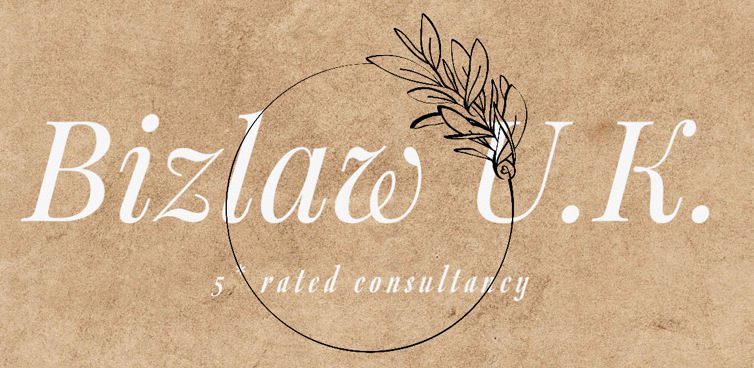|
Getting your Trinity Audio player ready...
|
Stock Transfer
A stock transfer form transfers shares from one person to another. Stock transfers worth £1,000 or less are usually not subject to Stamp Duty.
Completing the form
- Various types of information are required on the stock transfer form, including the buyer, seller, the amount paid in cash, other stock or shares, or debt, and the shares being transferred (quantity, class, and type). For example, 100 ordinary shares, ABC Limited.
- Enter ‘Nil’ as the consideration if you do not give any payment for the shares. If you give consideration other than in money for the shares, state what you have given.
- If the transfer is exempt from Stamp Duty, or no chargeable consideration is given for the transfer, you need to complete one of the certificates on the back of the stock transfer form. You need to complete a different certificate depending on what you paid for the shares.
Certificate 1
- You should complete certificate 1 if the consideration you give for the shares is £1,000 or less and the transfer does not form part of a larger transaction or series of transactions where the total exceeds £1,000.
Certificate 2
- You should complete certificate 2 on the back of the form if this transfer is exempt from Stamp Duty. For example, transfers in connection with a divorce or the dissolution of a civil partnership; The consideration is free of charge.
- In this case, stamp duty relief is not available.
How to get a stamp on your form
- Due to the temporary measures put in place to stop the spread of coronavirus (COVID-19), you should only email an electronic copy of your stock transfer form or instrument of transfer (for example, a scanned PDF) to HMRC at stampdutymailbox@hmrc.gov.uk.
- You must also include electronic versions of any agreement and supporting documents if HMRC has given a formal opinion or adjudication on how much Stamp Duty you should pay.
- You can also email an electronic version of form SH03 to notify HMRC of the purchase of own shares by a company at stampdutymailbox@hmrc.gov.uk.
- If you have already posted your instruments you should resubmit your notification electronically. And include the details of any payments you have made in respect of that notification. They cannot assess or return your instruments until temporary COVID-19 measures have been taken.
- HMRC must pay Stamp Duty before they process a stock transfer form. If you email the notification without paying Stamp Duty, HMRC will contact you by email before they progress your notification.
- You should allow HMRC 20 working days to give them time to deal with your form.
Errors that cause delays or rejection of the application
- There is no date on a stock transfer form.
- Document consideration value is not shown on the form when stamp duty is rounded to the nearest £5. Give the value of the shares if you are given shares as consideration.
What happens next
- Once HMRC has checked the form and confirmed receipt of payment they will send you a letter that will confirm receipt of Stamp Duty, detail the transactions they are confirming receipt for and the reference codes, giving assurance that HMRC will not pursue a penalty against the Registrar for registering the new owner of the shares
- You must send this letter to the registrar of the company you have bought shares in, along with the stock transfer form and share certificate. The registrar will then issue you with your own share certificate. If you’re submitting a form SH03 to Companies House, you should include a copy of the letter with the certificate.
Same day stamping service
- Their same-day stamping service is only offered under exceptional circumstances, for example, when a document has to be stamped as soon as possible due to an unfortunate or unforeseen circumstance. You must email requests for the same day stamping service to: stampdutymailbox@hmrc.gov.uk
- For transactions that may need stock transfer forms stamped at short notice, please email stampdutymailbox@hmrc.gov.uk giving as much detail as possible, including the number of forms to be stamped, the reason or reasons for the request, and the amount of Stamp Duty.
Reliefs and exemptions
However, there are some share transactions that qualify for reliefs or exemptions. They can reduce the amount of Stamp Duty you pay or are exempt from Stamp Duty altogether.
Refunds
If you pay too much Stamp Duty on a transaction you may be able to claim a refund within 2 years of the date of the stamped document. To implement a refund, the documentation must be updated within two years following the execution. During the first two years following an execution, documentation must be updated for a refund to be effective. The Stamp Office will email you if they need more information to support your claim. Taxes paid after an agreement was authorized will be refunded without interest .
CHAPS refunds
So if the refund you’re applying for is £150,000 or more you can ask for payment by CHAPS electronic transfer. You’ll need to include your bank details with your claim.
UK shares bought from abroad
- You must still pay Stamp Duty and get the transfer documentation stamped even if you acquire shares in a UK firm while abroad.
- If you do not do this within the time limits you may have to pay a penalty and interest.
- And if you buy foreign shares you do not have to pay Stamp Duty. If however, you bring a document that transfers shares into the UK there could be a charge to Stamp Duty.There may be other foreign taxes to pay.
For expert assistance regarding HMRC advice contact help@bizlawuk.co.uk or WhatsApp us on 07583452230 and we can connect you to the right finance law professional. Visit https://www.bizlawuk.co.uk to find out more about how we can help you with our other business services, check our 5-star testimonials and watch our Youtube channel or listen to our podcasts. If you find this information useful, please follow our social media platforms, like, and share.




